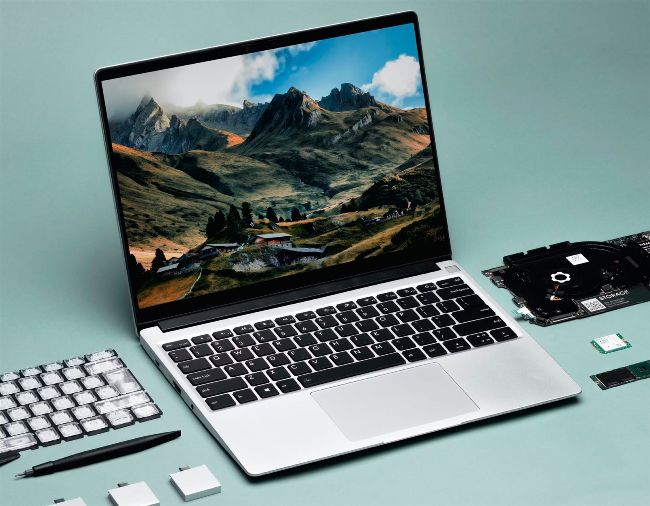IN DEPTH Framework
Framework
Three years on, the DIY laptop concept has come of age.

Contributions from: Alex Cox, Dave James, Paul Lilly, Desire Athow
T oday’s laptops offer limited DIY upgrade options at best, such as RAM or storage. At worst, just getting inside the thing can be a chore, only to find the RAM is soldered to the motherboard, and you tore a ribbon cable when you pried off the panel.
It doesn’t have to be this way. If we roll the clock back to 2021, a startup called Framework decided to take a different approach with a modular laptop designed to make all sorts of upgrades easy. “The conventional wisdom in the industry is that making products repairable makes them thicker, heavier, uglier, less robust, and more expensive. We’re here to prove that wrong and fix consumer electronics, one category at a time,” Framework explains.
Framework’s first effort consisted of a 13.5-inch laptop that somewhat resembled a MacBook. It was built around Intel’s 11th-Gen Core processors, configurable with up to 64GB of DDR4 memory, 4TB (or more) of PCIe 4.0 SSD storage, and Wi-Fi 6E connectivity. What really stood out, though, was the hyper-focus on user customisation, repairs and upgrades. From socketed storage and RAM to even the mainboard and display, Framework’s promise is that it is all easy to access and rip out as needed.
“High-use parts like the battery, screen, keyboard and colour-customisable magnetic-attach bezel are easy to replace. QR codes on each item take you directly to guides and the listing in our web store,” Framework says.
The feasibility of a modular laptop is predicated on Framework offering future hardware upgrades that will fit, and to that end, the company says it intends to offer new parts “regularly.” It’s also making this an open ecosystem, so that other companies can sell compatible parts and modules.